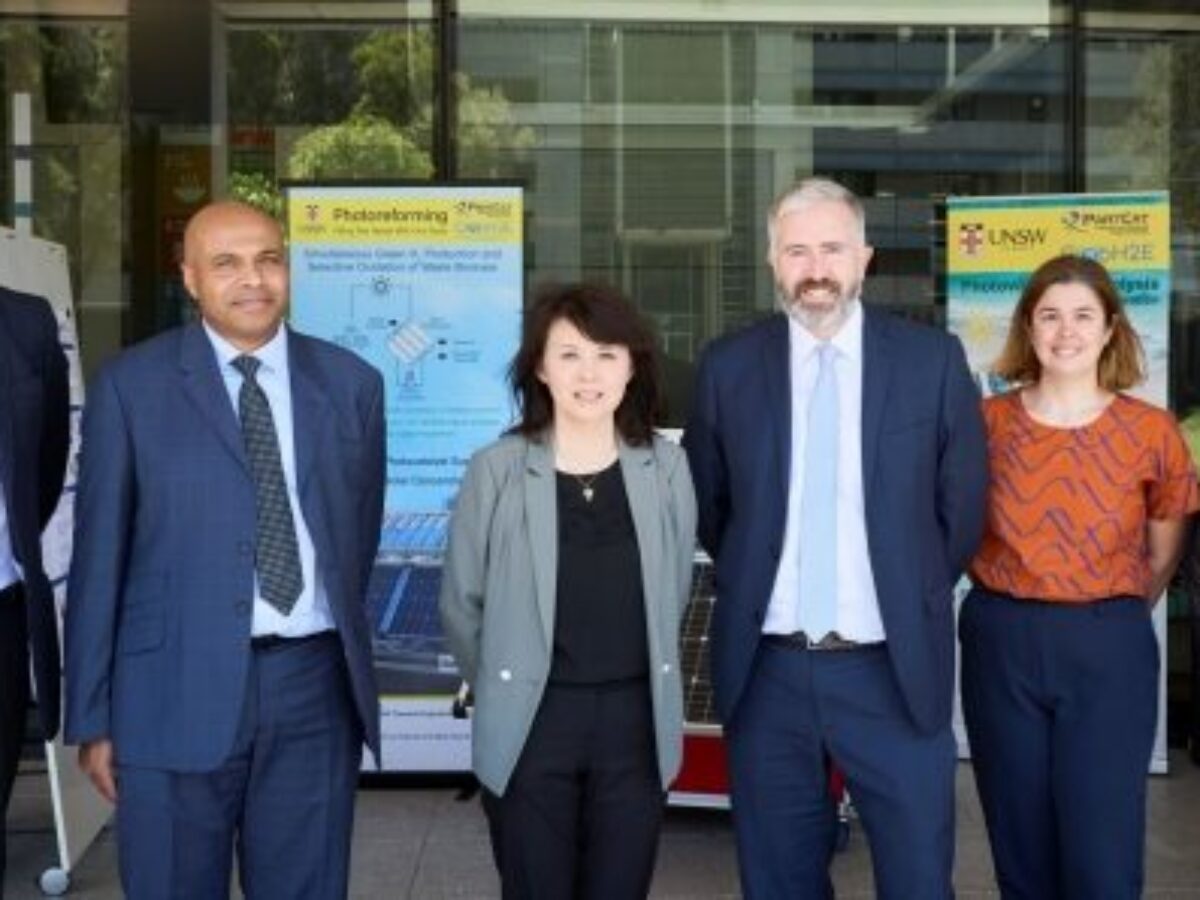UNSW opens new hydrogen centre
UNSW opened its new ARC Training Centre for The Global Hydrogen Economy earlier this week. The Australian Research Council awarded $4.9 million to “GlobH2E” in 2020, said the university, “to engage Australia’s best researchers to develop hydrogen technologies and innovations to aid the world’s transition to renewable energies”, with $3.5 million in contributions from industry partners. Co-director Scientia Professor Rose Amal said the centre's key focus areas are the production, storage and use of hydrogen; development of safety systems and controls; and commercialisation, public acceptance and the skills that industry will require in a hydrogen economy. “We have the potential to create thousands of new jobs and generate billions of dollars in economic growth between now and 2040, while reducing our dependence on imported fuels and helping to reduce carbon emissions in Australia and around the world,” added Amal.
Diesel exhaust fluid grant program open
A federal grant program aiming to shore up supplies of diesel exhaust fluid (DEF) is open until January 31, the federal government reminded those interested in a statement this week. DEF (also referred to as AdBlue) reduces nitrogen oxide emissions from diesel engines, and was in a shortage last summer, prompting fears the transport industry could be crippled. The $16.15 million Maintaining our Supply of Diesel Exhaust Fluid (MOSDEF) competitive grant program “aims to encourage Australian industry to produce DEF from means other than imported technical grade urea (TGU)” said the federal government in a statement. DEF is approximately one-third TGU. The grant program would “enhance the resilience of the domestic DEF market by supporting domestic manufacturing from 2023 to mid-2026” according to the government.
Applications open tomorrow for NSW $30 million investment attraction grant
The Future Industries Investment Program, aimed at driving growth in emerging industries and strengthening high-tech manufacturing, will begin accepting applications on Thursday. The $30 million program is a competitive grant program offering rebate support for eligible businesses that create a minimum of 20 ongoing net new full-time equivalent jobs in the state, or invest a minimum of $3 million in capital expenditure (excluding assistance from this program) within NSW as part of the overall project. “NSW is the manufacturing powerhouse of Australia and is home to a diverse range of innovative manufacturers that make and export world-leading products,” said state investment minister Alister Henskens. More details can be found here.
Neurotologix named WA Innovator of the Year
Western Australia's 2022 Innovator of the Year Awards have been held, with Neurotologix named the WA Innovator of the Year 2022 in recognition of their remote patient monitoring device for dizziness and vertigo. It received $70,000 to commercialise their innovation, and through BioDesign Australia, have won the added support of three PhD students to further their program research. Other category winners included Protective in the Rio Tinto Emerging Innovation Category for their broken neutral protection device; Xsights Digital for the XioT Health Tag, used for livestock health and welfare monitoring, in the Business News ‘Great for the State' Award category; and Lixa for their Neo X platform technology, used for mitigating antimicrobial resistant bacterial infections, was the Wesfarmers Award Winner.
Recruitment process for Rail Supplier Advocate to get underway shortly
Federal assistant manufacturing minister Tim Ayres said an advocate to help deliver the National Rail Manufacturing Plan would be appointed shortly, with the advocate and the Office of National Rail Industry Coordination (ONRIC) to advise on the rail industry and maximising Australian manufacturing's contribution. The Rail Supplier Advocate would advocate on behalf of the rail industry to governments, ensuring local suppliers are considered for transport projects. The advocate, said Ayres on Tuesday, “will be an important part of the National Rail Manufacturing Plan – our fresh vision for a renaissance of rail manufacturing… The plan will support skilled manufacturing jobs and support more trains being built here in Australia.” The recruitment process “will commence in the coming days.”
Picture: The ARC Training Centre for The Global Hydrogen Economy was opened on Monday at UNSW. Pictured (L to R) are: UNSW Vice-Chancellor and President Professor Attila Brungs, Prof. Kondo-Francois Aguey-Zinsou, Scientia Prof. Rose Amal, Assistant Minister for Education Anthony Chisholm, NSW Deputy Chief Scientist Dr Jaclyn Aldenhoven, Australian Research Council's Dr Mary Kelly. (Credit Richard Freeman/UNSW Sydney)






